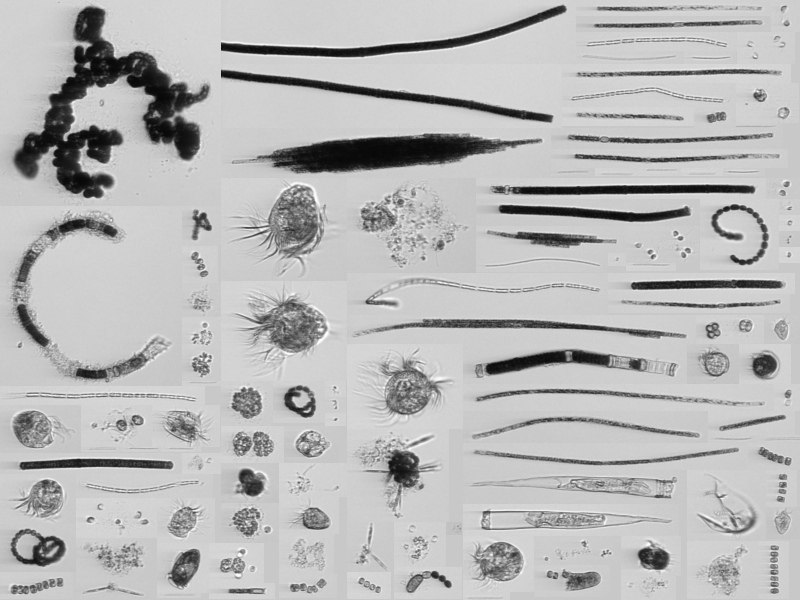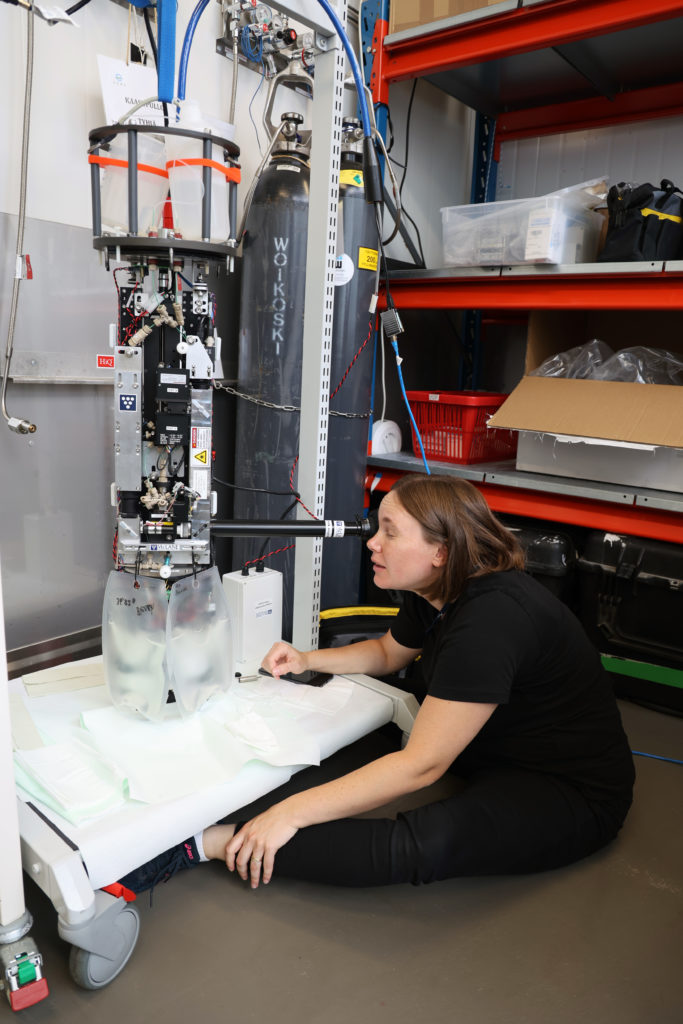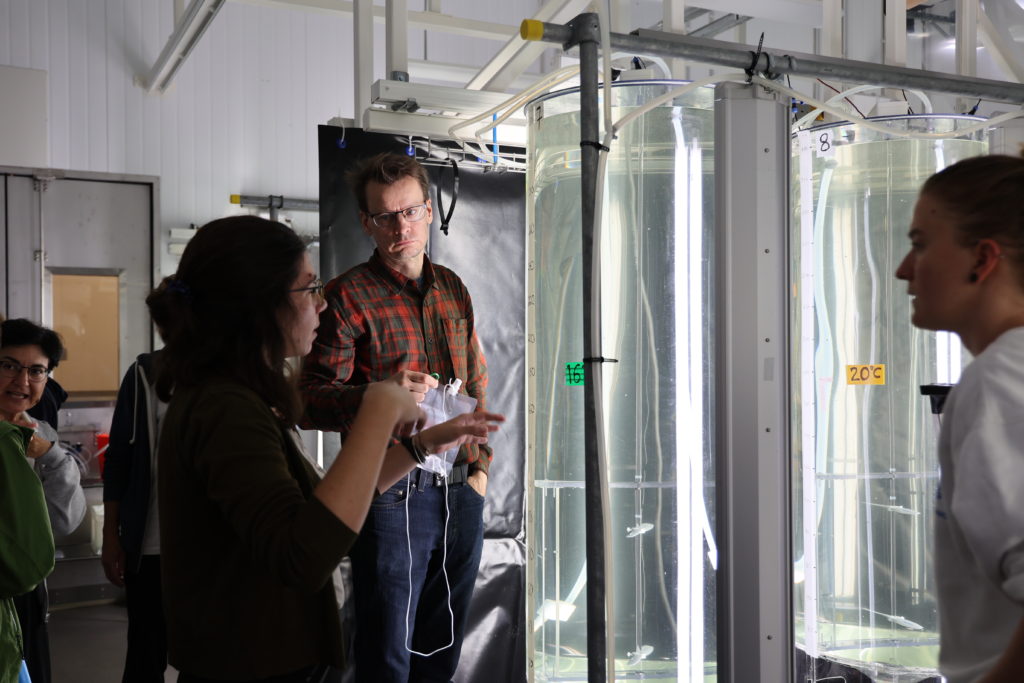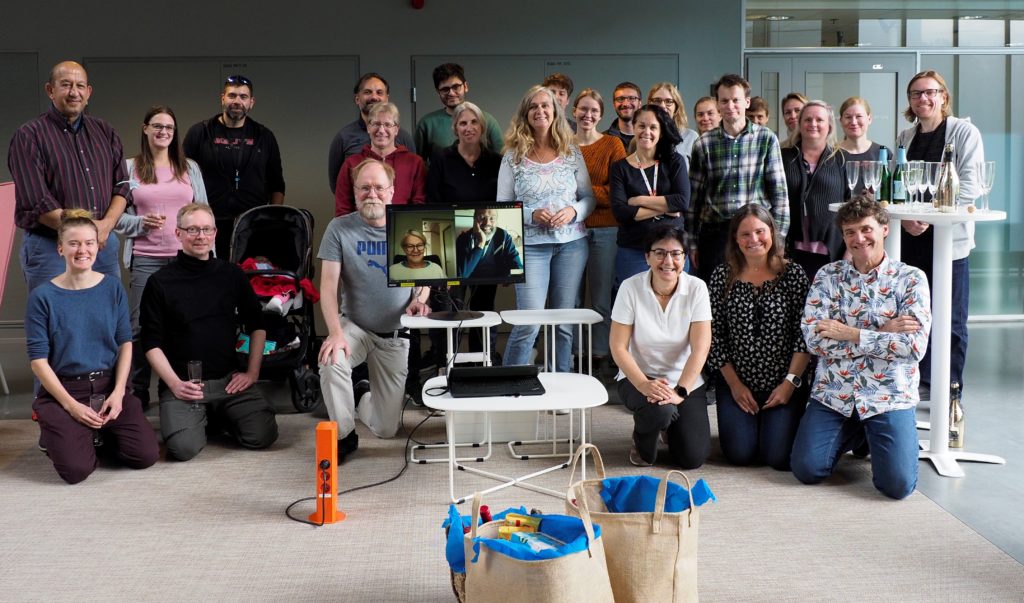Climate change is causing increasingly frequent heat waves, which not only hit land areas, but also coastal seas. An increase in the water temperature affects the life of plankton and the pathways of nutrients and carbon. Because of the sporadic nature of the heatwaves, their effects are hitherto poorly known. Studying their multifaceted and complex effects on coastal seas requires an interdisciplinary approach.

Long-term coastal observations and the use of novel sensors in the JERICO-RI are able to reveal the frequency and magnitude of heat waves and provide a basic understanding of bulk changes in plankton communities. A more in-depth understanding of the heatwaves on planktonic processes requires further targeted research, e.g., the experimental approach by AQUACOSM-plus, in which mesocosms studies with active manipulation of natural plankton communities are used.
In August 2022, we monitored a heatwave in the Gulf of Finland, by continuous measurements of several parameters at the JERICO Pilot Supersite ferries and fixed platforms.

At the same time (22.8.-2.9. 2022), we conducted a mesocosm experiment using the AQUACOSM indoor mesocosm facility at the Finnish Environment Institute SYKE, Helsinki. In the experiment, we exposed natural plankton communities from the Gulf of Finland to elevated temperatures.
With the support of the Transnational Access of JERICO-S3, international groups from Lake Lab of the Leibniz Institute of Freshwater Ecology and Inland Fisheries IGB (Germany), the Hellenic Centre for Marine Research HCMR (Greece) and the National Centre for Scientific Research CNRS (France), participated in the experiment jointly with the scientists of SYKE.

The mesocosm experiment, which was carried out indoors, involved high-frequency measurements of plankton ecosystem structure and functioning using the autonomous sampling and analysis instrument AquaBox, sensors and imaging systems, as well as the kinetics of planktonic organisms from viruses to zooplankton. The unique combination of collaborative observations and experimentation greatly facilitated the research of this complex environmental challenge.
The experiment is the third in the series of JERICO-AQUACOSM collaborations. The previous experiments were carried out in the NW Mediterranean and the Cretan Sea, where the effects of riverine loads and air-borne aerosols on plankton ecosystems were studied.

